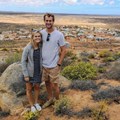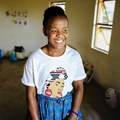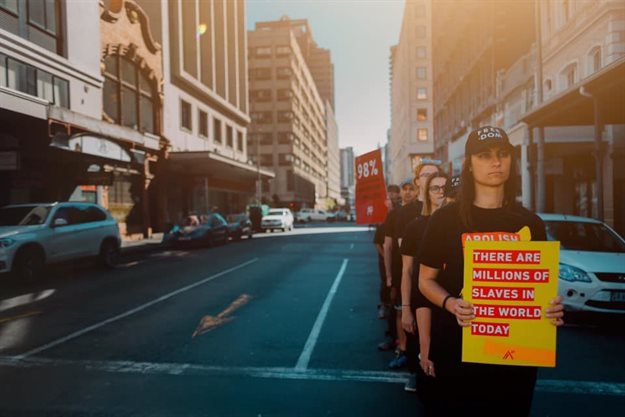
Cornel Viljoen at a Freedom Walk.
“Human trafficking happens in plain sight,” says Cornel Viljoen, A21’s Reach (prevention and awareness programme) coordinator in South Africa. “It’s the buying and selling of human beings where someone is typically offered a job or education opportunity and are tricked into believing it’s real. When they arrive at the destination, they are exploited as slaves and shackled by fear,” she explains.
In South Africa, there are an estimated 155, 000 people enslaved. Slavery in South Africa ranges from sexual exploitation on the streets and in illegal brothels to fishing trawlers, forced labour on farms, and domestic servitude.
From volunteer to veteran
“I first heard about the A21 Campaign in 2012 when founder Christine Caine was speaking at the Colour Conference. I’ll never forget the video they screened, showing how people were being sold as slaves in this day and age. I instantly knew I had to do something,” says Viljoen. The following year, A21 opened an office in South Africa and she started working as a volunteer.

Viljoen teaching about trafficking.
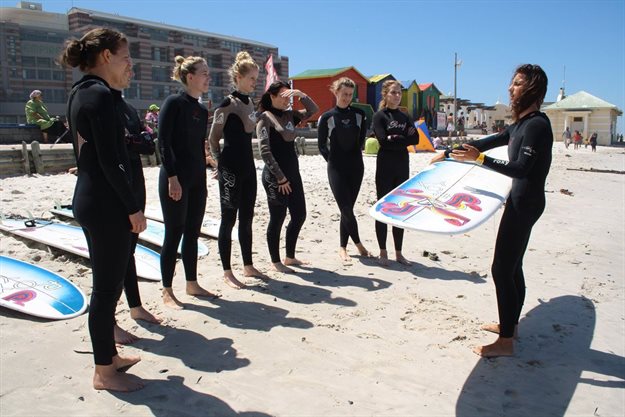
SurfLife donates to A21 anti-human trafficking movement.
That same year, Viljoen, a true Capetonian with a passion for the ocean and surfing, also realised her dream and founded a mobile surf school called SurfLife. Since its inception, she has been donating 5% of each surf lesson package to the A21 anti-human trafficking movement.
Viljoen was then employed full-time by A21 as of 2015, while still running her surf school on the side. “I’m inspired by my job because I can see the effects of it: we see people come out of slavery, we help people build their lives up again and we give people hope for their future. The fruit of what we’re doing is so rewarding,” she says.
Awareness saves lives
Viljoen and the A21 Reach team’s main activities include running school programmes, community awareness days, talks at youth groups, hosting Shine Hope groups, and partnering with the government to get the word out. They work tirelessly to make sure that those most vulnerable hear about trafficking and learn how to protect themselves.
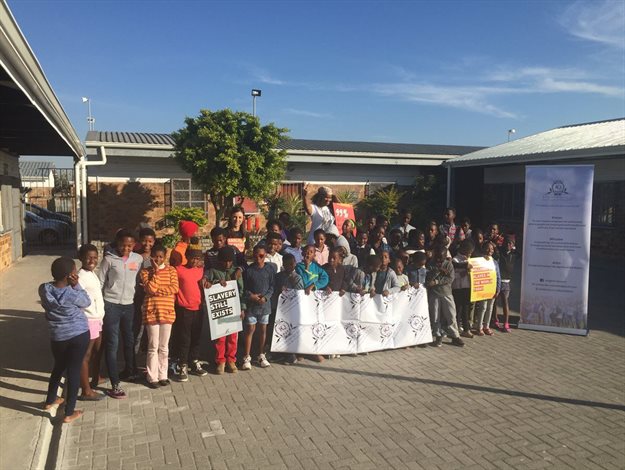
A21 Reach runs school programmes.

Viljoen with youth group.
“Partnership is crucial for us. We partner with the government on various levels (department of social development, health, justice, the national prosecutor authority, social workers etc.), but there are many ways the public can partner with us too - from monthly support, once-off donations and fundraising, to sharing social media posts, sharing our parenting guides, or just having intentional conversations to spread awareness,” she notes.
According to the organisation, the beauty and perception of economic prosperity in South Africa lures people from all over the continent, but also from Asia, with the promise of a “better life”. The heart of A21 is “to rescue and fight for the one” - the one woman, the one man, the one child trapped and exploited, unable to see an end to their nightmare.
“At an expo day at a clinic in Parow recently, we had a mother share an amazing story,” Viljoen recalls. “Her two kids had a friend who was going for job interviews in Epping. While this friend’s father accompanied her for the first and second interview, the interviewers told her that for her third interview, she didn’t have to bring her father with and that she shouldn’t tell any family members that she was going for a third interview. The mother told us that because her kids attended a presentation we did at their high school explaining how to identify potential human trafficking situations, they shared the information with their friend and essentialy saved her life.”
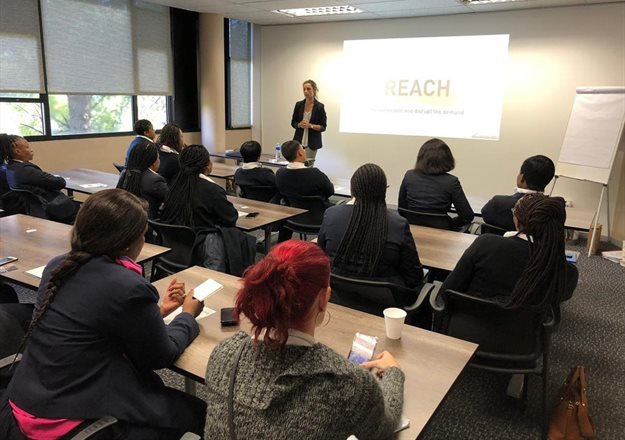
Viljoen hosts training session.
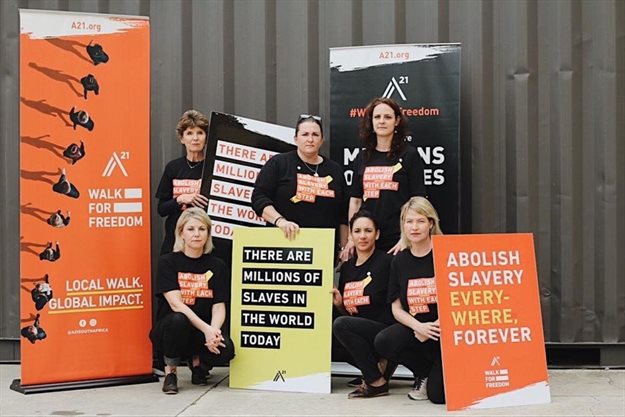
A21-team in George.
“It’s so rewarding knowing that my work is making an impact on people’s lives and seeing how my contribution is helping to prevent people from becoming victims in the first place,” she says.
Giving back dignity and authority
While Viljoen is actively involved in the educational part of the organisation, A21 also works with rescued victims to teach them life skills, help them create their CVs, set up budgets, and look for jobs. The A21 workers make rescued persons feel safe by slowly giving back responsibility and, importantly, giving them freedom of choice (from which tea they would like to drink to which chair they would like to sit on) because when you have been trafficked, everything is forced on you and your freedom of choice is obliterated.
“Our teams give back dignity and help victims take authority over their own lives again,” she explains.
To find out more, go to A21.org. If you suspect a potential case of human trafficking, call 0800222777 or go to 0800222777.org.za.
“Our lives begin to end the day we become silent about the things that matter.” – Martin Luther King, Jnr
We erronously reported previously that an estimated 248,700 people are currently enslaved in South Africa. The latest statistics from the Global Slavery Index indicates 155,000 people are currently enslaved in South Africa.





































